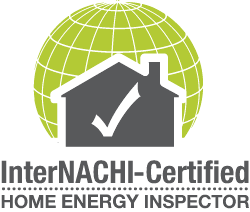The art of negotiating is a skill that can make all the difference in the complex world of real estate negotiations. Home inspections become a powerful tool for savvy buyers and sellers to negotiate better deals among the back-and-forth of offers, counteroffers, and compromises. Stakeholders may conduct negotiations confidently, pinpoint areas for negotiation, and ultimately produce more favorable results by using the insights and information obtained from a thorough home inspection in Detroit, MI. In this blog, we examine the art of negotiating and how the wise application of home inspections may be a game-changer in pursuing better deals in the dynamic real estate market.
The Importance of Negotiation in Real Estate Transactions
Real estate transactions must include negotiation, which is crucial to determining outcomes and securing favorable deals for buyers and sellers. The art of negotiation is crucial in the complex world of real estate, whether it’s arguing over the purchase price, resolving repair requests, or navigating contingencies. A stakeholder’s ability to make informed decisions, maximize their financial interests, and negotiate the complexities of the market can be enhanced by understanding the value and impact of negotiations.
The market’s inherent nature is one of the main reasons why negotiating is essential in real estate deals. The real estate market is dynamic, with various properties, motivated buyers, and sellers with various objectives. Priorities, expectations, and financial considerations are unique to every party undertaking a deal. These parties can discover common ground during negotiation, resulting in a win-win deal.
For buyers to get the greatest deal possible, negotiating is essential. Negotiation enables buyers to secure the property at a price consistent with its genuine value. Real estate is frequently one of the most significant investments people make. Effective negotiation strategies can result in significant savings or increased value for buyers when they are supported by market research and analysis. A lowered purchase price can save money for future upgrades or offer a financial cushion while homeownership is underway.
By increasing their return on investment, sellers gain through negotiating, on the other hand. While navigating the market and meeting their preferred timeline, sellers want the best price for their property. Sellers skilled in negotiations may present their property’s unique features and value proposition, place it in a competitive market, and negotiate conditions that support their objectives. A positive outcome for sellers is likely following a successful negotiation that leads to a greater sale price, better contract terms, or a quicker closing process.
Negotiation may also be used to resolve issues or repair requests found during home inspections. Home inspections are essential for finding any problems with a house, from simple fixes to more serious structural issues. Open discussion, understanding, and a willingness to compromise are required between buyers and sellers when negotiating repair demands. Negotiators with experience can successfully navigate these negotiations and come to agreements that balance the interests and responsibilities of both parties. Successful bargaining in this area may result in the buyer receiving satisfactory repairs, financial relief, or adjusting the purchase price.
Dealing with contingencies and contractual obligations often requires negotiation. Contingencies in real estate contracts frequently refer to things like finance, appraisals, or selling another property. These contingencies provide buyers and sellers the chance to negotiate and offer protection. Effective negotiation may guarantee that the contract’s terms are reasonable, fair, and in line with the interests of all parties.
The Role of Home Inspections in Uncovering Negotiation Opportunities
Home inspections in Detroit, MI, play a significant part in real estate transactions since they thoroughly assess a property’s state. Home inspections are crucial for identifying negotiation opportunities for buyers and sellers, in addition to evaluating a property’s structural integrity, electrical systems, plumbing, and other components. Home inspections provide a forum for discussion and negotiation by exposing concealed problems and potential issues, enabling parties to resolve these findings and reach beneficial agreements.
Finding hidden problems that might not be immediately obvious during a regular property viewing is one of the primary purposes of home inspections in spotting negotiating opportunities. Despite a property’s curb appeal, there may be hidden problems that have a negative influence on both its value and use. These hidden problems, which can range from structural problems to electrical, plumbing, roofing, or HVAC issues, are revealed by home inspections. By highlighting these problems, buyers can better assess the property’s actual state. They can start a discussion about any necessary repairs, possible price reductions, or other contingencies.
Home inspections allow buyers to negotiate over repair requests based on the inspector’s findings. The inspection report is an unbiased and thorough document explaining any flaws or problems found throughout the inspection. With this knowledge, buyers can ask for financial concessions to cover the cost of repairs or negotiate with sellers to have the faults addressed before closing. Buyers can represent their interests and seek solutions that maintain their investment and guarantee the property meets their expectations by using the inspection report as evidence.
On the other hand, before marketing their house, sellers might deliberately use home inspections to address any negotiation issues. Sellers can proactively find any hidden issues and make the necessary repairs or reveal them to buyers up front by performing a pre-listing inspection. This degree of openness promotes confidence and lessens the possibility of unpleasant surprises during negotiations. Prioritizing significant concerns will help sellers ensure a smoother transaction and even reduce the need for repair negotiations. Additionally, by providing the inspection report to prospective purchasers, sellers show their dedication to a fair and transparent process, which may strengthen their negotiation position.
Home inspections often present opportunities for price negotiation. Buyers may negotiate a lower purchase price to cover the expense of renovations or repairs if an inspector finds severe faults during the inspection. On the other hand, by showcasing the property’s condition and any changes they have made, sellers may use inspection reports to support their asking price. Negotiations based on inspection findings can be a cooperative process where both sides reach a deal that reflects the property’s genuine value in light of its state and is agreeable to both parties.
Home inspections can also reveal problems that may impact a property’s ability to obtain finance, insurance, or future maintenance expenses. For instance, mold, pest infestations, or outdated electrical systems may present issues for lenders or insurance companies. These revelations offer a chance for discussion to address these issues, which may include requests for repairs, the inclusion of particular eventualities, or the adjustment of contract terms to satisfy finance or insurance needs.
For the best home inspection, trust Blessed Assurance! Our expert Detroit home inspectors offer top-notch services to provide peace of mind. Schedule your home inspection today and experience our unparalleled professionalism and thoroughness.









